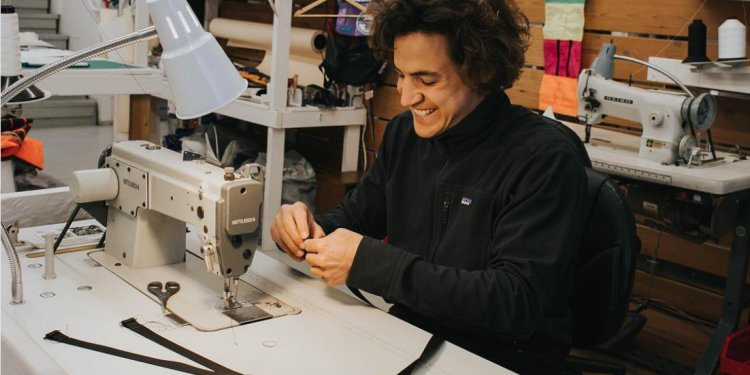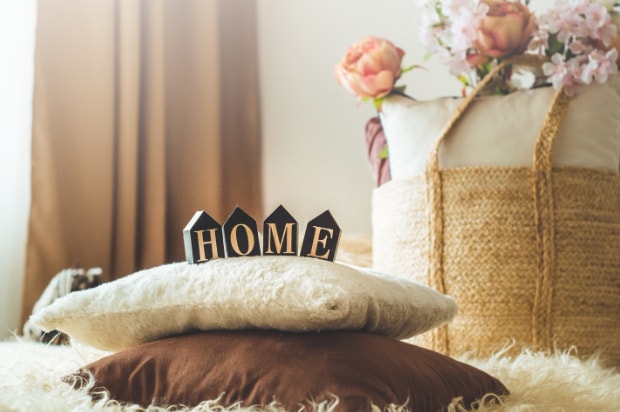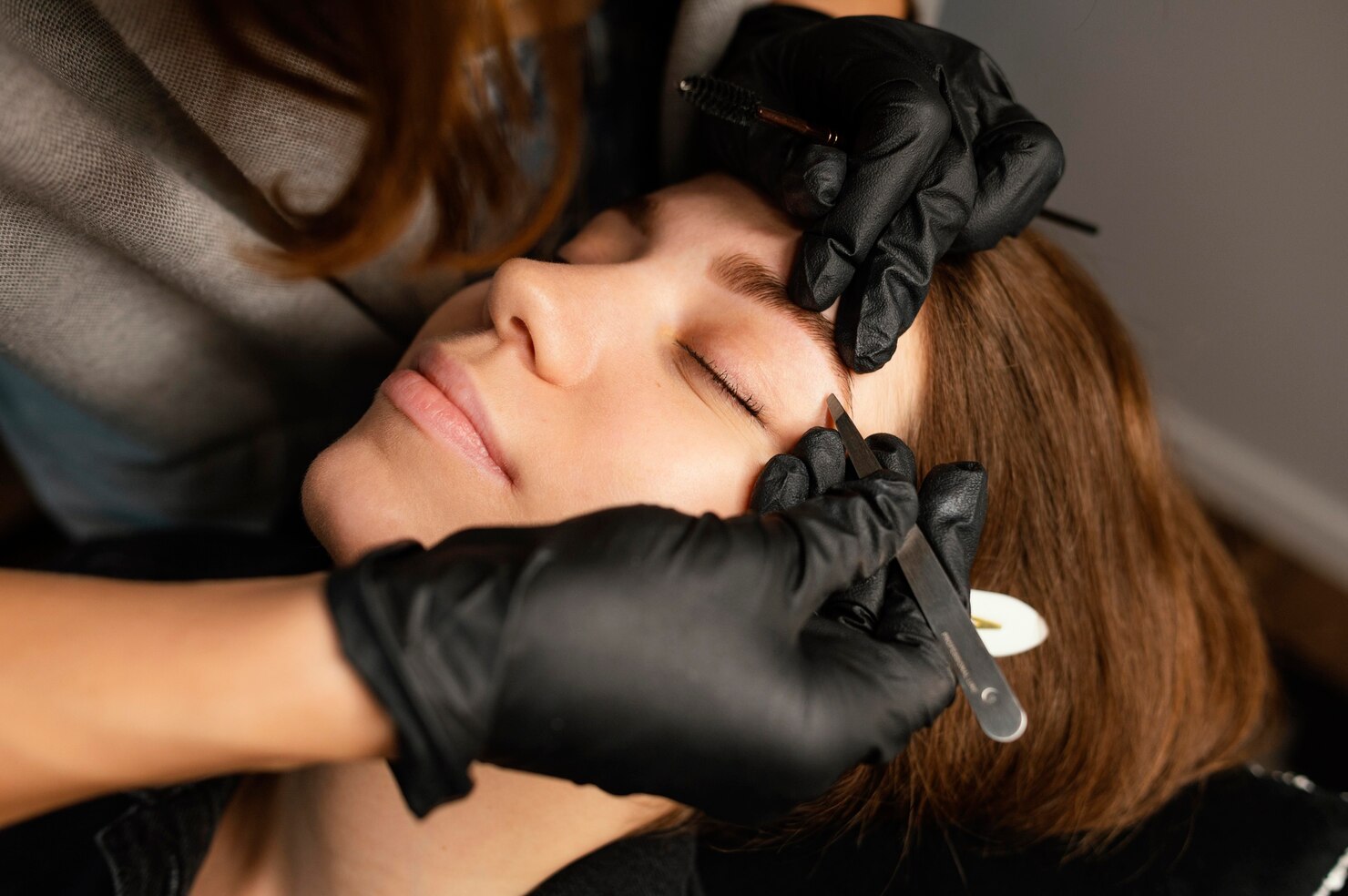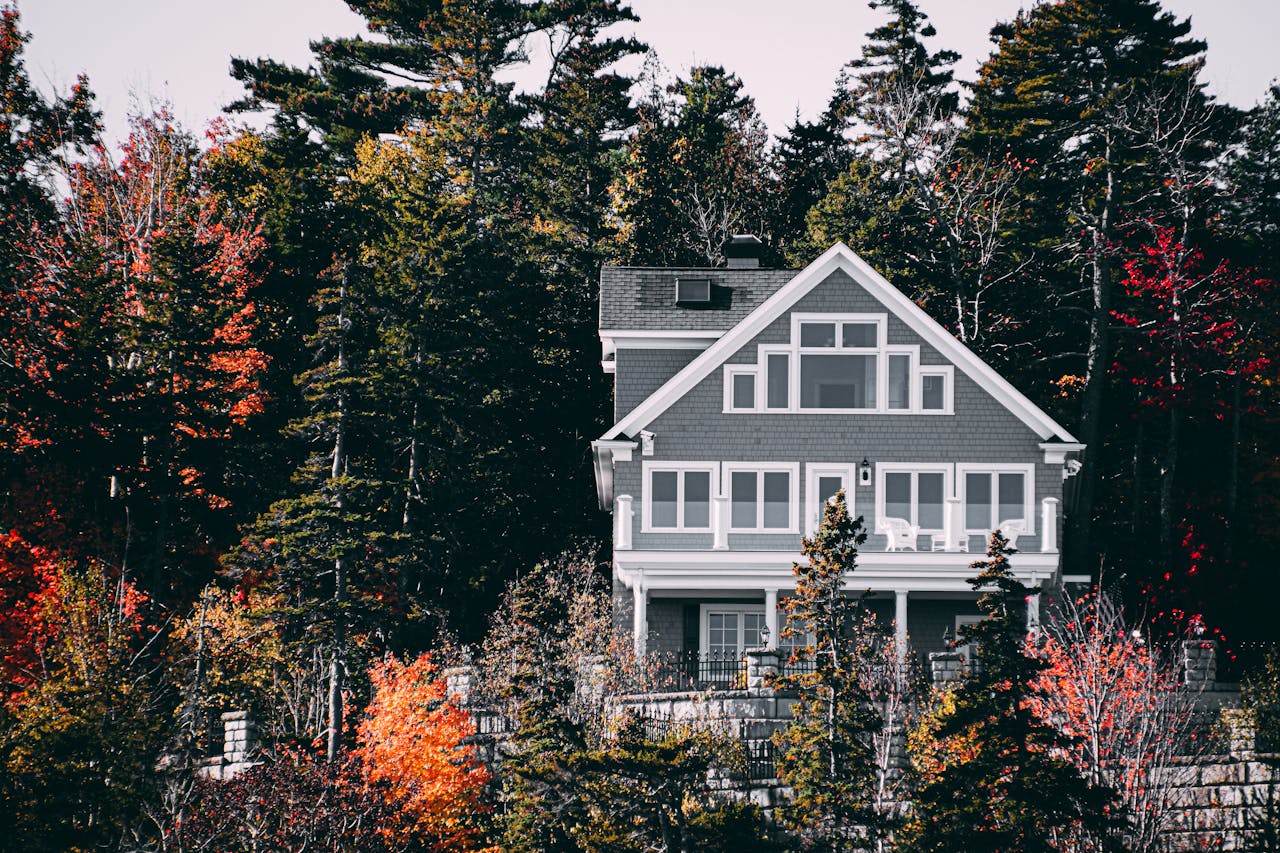By now, recycling has become very established in many countries around the world today. A Forbes report from 2016 noted that nearly all of the countries in the OECD recycle some portion of their waste, with Germany in particular recycling a sizable 65% of all municipal waste. And while many countries don’t necessarily recycle a majority of their waste, perceptions towards recycling are often favorable, as evidenced by research from the Pew Research Center suggesting 76% of Americans live in communities that either encourage or strongly encourage recycling.
What hasn’t gained widespread acceptance up until this point is the rival concept of “upcycling”. Unlike recycling, which reuses waste by breaking it down to its base materials, upcycling gives waste new life by refashioning it, allowing it to maintain its form. This often requires less energy and resources compared to recycling, and in some cases can produce higher-quality products. Despite these benefits, upcycling hasn’t really gained traction in global consciousness until relatively recently.
Mafia Bags is trying to change that. Founded in 2012 by siblings Marcos and Paz Mafia in Buenos Aires, the company embodies the upcycling process by producing bags and accessories out of used boat sails, cutting and sewing them together to make new and original pieces. Now based in California, Mafia’s stock has risen in the past few years, as evidenced by collaborations it’s completed with companies like Vans and Patagonia. I spoke with co-founder Marcos about the benefits of upcycling, Mafia’s past collaborations, and the company’s future goals.
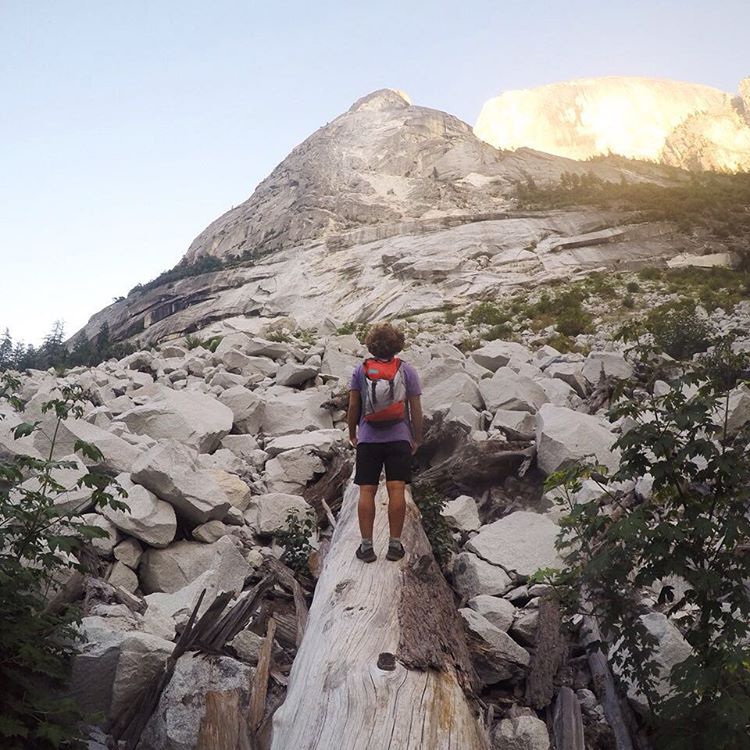
In the Photo: Marcos Mafia with a Mafia bag Photo Credit: Mafia
Q: What was the story behind founding Mafia Bags?
M: Six years ago, back in Buenos Aires, I used to kite-surf professionally, and I had this big pile of sails that was sitting in my room. One day my mom came into my room and said “Marcos, you need to do something with your sails or I’ll just throw them away.” I was trying to think what would be the best solution for these sails, and I figured out that the thing that I liked the most in my life was my backpack and my bags in general, because that was what I used to travel around the world and that was the item that I could not forget.
So we started exploring the idea of making bags out of my old sails and my friends’ old sails. I say “we” because I partnered with my sister Paz. She is an industrial engineer, so she was the perfect match for building this company. At the same time, one of my sponsors was a wetsuit company, and I was doing an internship at their factory. So I was familiar with sewing and what was happening in the sewing shop, and all the details that I should learn in order to be in this apparel class and accessory business.
Mafia was created with a group of friends and family just wanting to see a product made from sustainable materials, and also done locally while transforming every aspect of the process, in the way that we get materials, and the way we sell our products, and the way people will be able to come and see our studio and see how everything is manufactured. It became our own version of what we think is a good way of running a business. It started as a group of friends, and those were our first customers, and then Mafia grew into something bigger, where there were other stores interested in our products.
That was probably 2012, in 2013 I traveled to the US for some sponsorship meetings and I realized that if we wanted to be a global company we needed to be in California. And I just love California, the first day I rode my bike around San Francisco I came back to my friend’s place and called my sister and said to her “Paz, we’re moving to the US.” She was like “Marcos, you’re out of your mind. We just launched this business two years ago and now you want to go to the US?” But that’s what we did, eight months after that we moved to San Francisco, and it was a really, really fulfilling experience.
We had to start from scratch again here because we had this key idea of making local stuff. We had to figure out the way to source sails here in San Francisco, how to set up the studio and then connect with local manufacturing, there were a number of things that needed to happen in order to see the business succeed. But it was great, because that same challenge that we were facing before back in Buenos Aires, we had to deal with it again, but with more resources and with more idea of how things should be made.
Besides that, we wanted to work with all these people that were here in California. We just kept that feeling, and we were able to do some great partnerships as soon as we moved into the US. I remember one of the first ones was a partnership with Vans, the shoe company. Last year we worked with Patagonia. The amazing thing that we found here in the US is that it isn’t really important who you were, the important thing is what we’re doing and how we’re doing things. That gave us a really good chance to make Mafia grow and settle here in the US, and just make a number of different things with the same concept.
Mafia’s not only about making bags out of sails, it’s more about rethinking materials and just finding creative solutions to what other people made trash. Sails or cutting ropes or old Patagonia jackets or wetsuits, and that could be made into different things. It could be a bag or an apron, it could be an art installation for a tech company. I even make fun of ourselves and say there will be a day with Mafia Bags who will not be doing bags anymore. The movement behind our company is not just aobut sails or bags, it’s more about “hey, let’s live in a different way, let’s rethink how to do business and how we can source materials, or how these things that people think are trash can be turned into something that people want to buy again.”
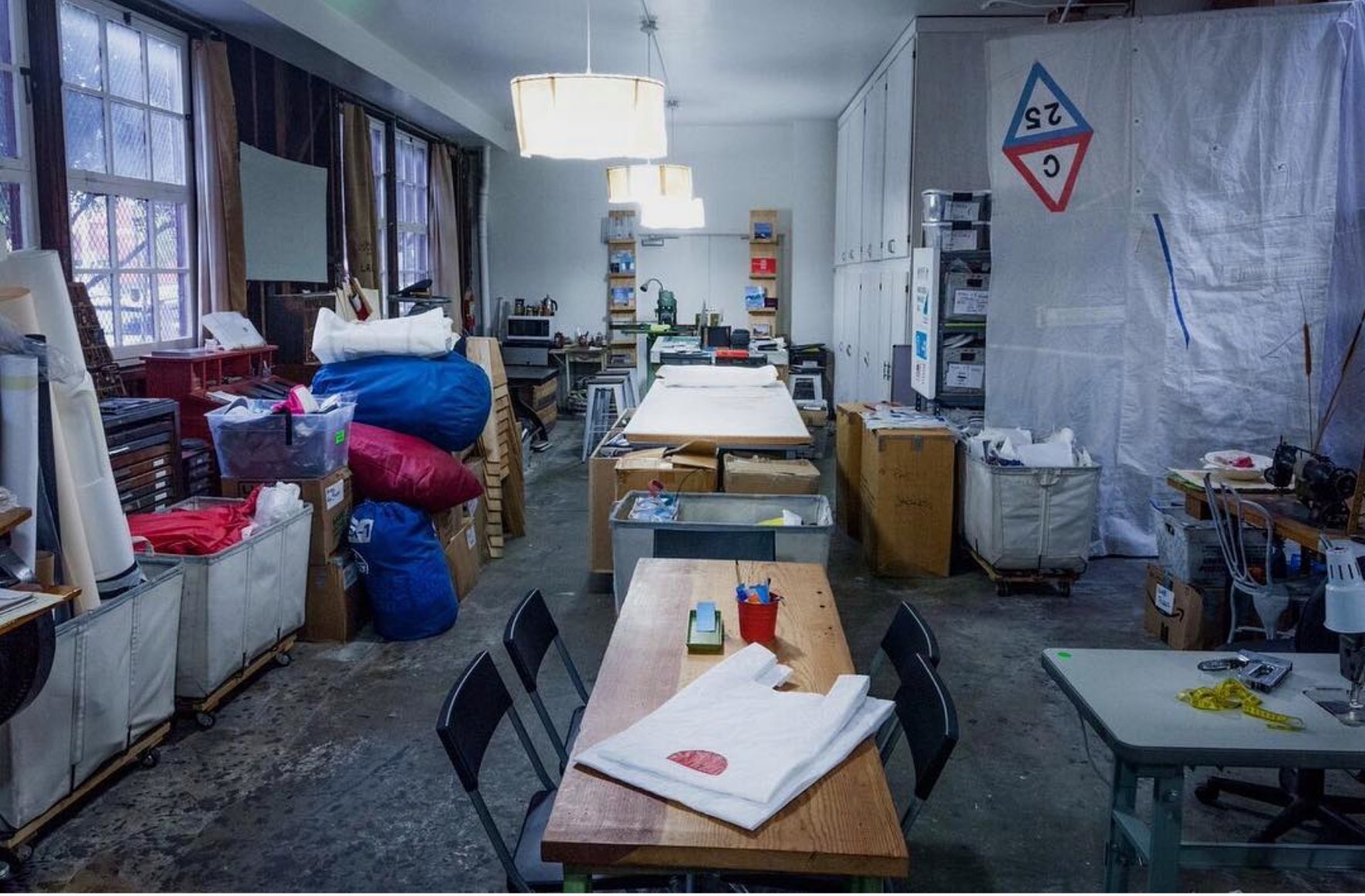
In the Photo: Mafia workshop Photo Credit: Mafia
Q: I find it interesting you mention that Mafia is something that you can share with your family and friends.
M: It’s about building a company that you want to come to work for every day. There are all these rules of the market and ways that we should be doing things, going to trade shows and doing this or that. I’d rather focus on what makes us happy, and what will make our work thriving and something that we will just enjoy. It doesn’t mean that we’re having fun all the time; we’re working hard here and hustling. But it’s something that we enjoy and appreciate. Doing things our way also means being proud of the products that we design and manufacture.
Q: So I’ve never actually heard of using recycled sails before as part of a business, are there any special considerations that need to be taken into account for that?
M: Actually, all of our products are upcycled, they’re not really recycled. Recycled is when there’s a process between, let’s say, a water bottle and when you create a fabric. The sails and the materials that we use, they come out from the trash or from what people think is useless, and they’re built again into something different. But the material is the same as it originally was. So the impact that we have on the environment is way lower, because it’s Andrew in our workshop cutting the sails with the cutter and sending them over to our factory 30 or 40 miles away from our studio.
It’s a very low impact kind of thinking. It’s a way different business in comparison to doing a sustainable clothing brand where you still need to talk to your supply in Asia, and send recycled fabric from across the world. It’s a way different scale too; we’re just doing bags with a lifetime warranty, where each one of them is one of a kind. I think it’s a completely different business model. We’re constantly learning from each other though, there is no one right way of doing things. The way that makes sense for Mafia is doing it local, with upcycled fabrics and upcycled materials, and having a different conversation with our customers too.
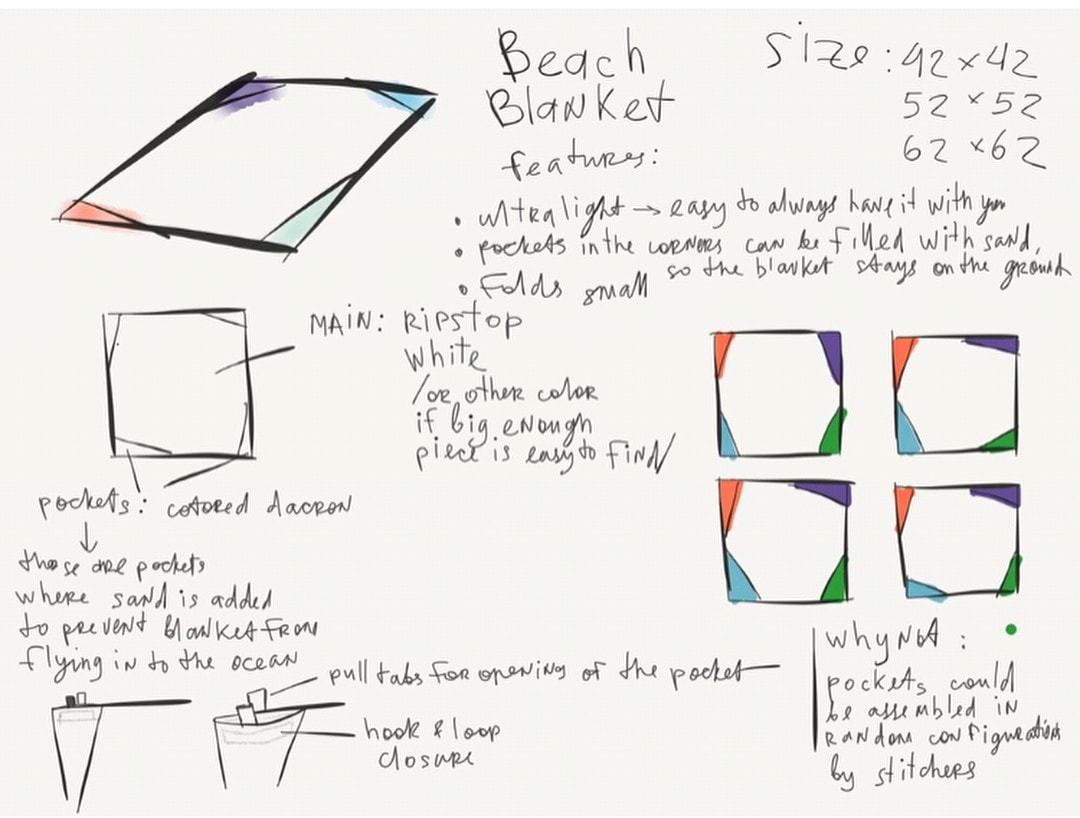
In the Photo: Simple beach blanket design Photo Credit: Mafia
Q: On your website you have a sizable list of ambassadors vouching for your brand. How were you able to connect with them?
M: I think it’s a very natural connection, where people engage with this way of reusing materials, and from there we connect, become friends, and that’s what turns into more of an ambassador kind of relationship. There wasn’t any specific method or strategy that we did just to reach out to these people. It’s more like we shared a way of thinking, “you inspire us, we inspire you hopefully,” and then things worked out. Many times for great things to happen, or for great movements or ideas, you need to be surrounded by the right people.
Q: Mafia has also done a number of other collaborations with companies like Patagonia and Vans in the past. Was connecting with them similar to connecting with the ambassadors?
M: At the end of the day, each of these companies was built by people. These collaborations, for us it’s like a trip. There’s a learning curve, like learning about something that was lacking or one improvement that we’ve got to do in our company, that we take from these experiences. That’s the amazing thing about being able to work with these other companies, or even with our competitors. We are just constantly in touch.
Related Article: “THE FUTURE OF GREEN FASHION: INTERVIEW WITH GUIDO DOLCI” by Alexandra Tyan
Q: What is the future of Mafia in your eyes?
M: I think it would be really good to have Mafia thought of as a reference as a good way of doing business, as a good model to have other companies follow or at least analyze what we’re doing. From a consumer’s perspective, it’s about finding solutions and designs for other materials, and how we can get other companies and other groups engaged into scaling up this upcycling process, or scaling up the idea of just making products out of upcycled materials that are made locally, with a high value in design. At the end of the day, if we’re not making something functional that will last long, there’s no point of upcycling. Every bag or product that we make needs to be functional and really well designed.
EDITORS NOTE: The opinions expressed here by Impakter.com columnists are their own, not those of Impakter.com


